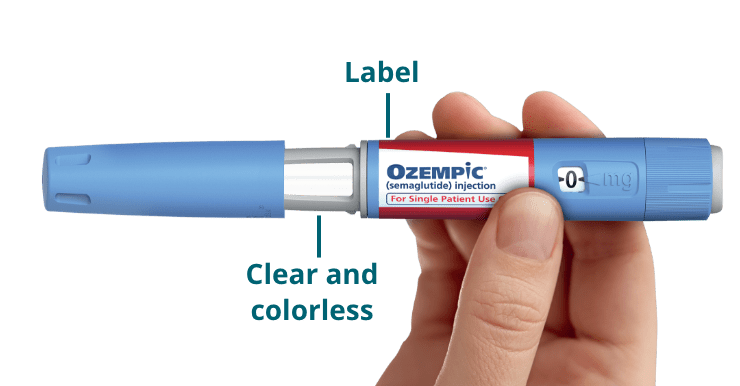Introduction
Ozempic, the brand name for semaglutide, has rapidly become one of the most discussed drugs in modern medicine. Originally developed to treat adults with inadequately controlled Type 2 diabetes, it has since gained FDA approvals for reducing cardiovascular risks and slowing kidney disease progression. However, its off-label use for weight loss has propelled it into the global spotlight, sparking medical debates, legal challenges, and regulatory concerns.

Clinical Profile of Ozempic
Ozempic is a once-weekly injectable medication by Novo Nordisk. Its mechanism of action involves mimicking the GLP-1 hormone, which regulates blood sugar, reduces appetite, and slows gastric emptying.
Approved Uses:
- Type 2 diabetes management
- Reducing risk of heart attack, stroke, and cardiovascular death
- Slowing chronic kidney disease progression
Clinical trials have shown significant benefits, including a reduction in HbA1c levels and fewer cardiovascular events compared to placebo.
Off-Label Weight Loss Use
Although not FDA-approved for weight management, Ozempic’s appetite-suppressing effects have made it popular for weight loss. This led to the development of Wegovy, a higher-dose semaglutide specifically approved for obesity treatment.
Average Outcomes
- Ozempic: 8–15 lbs lost in trials
- Wegovy: Up to 15% body weight reduction
- Mounjaro (tirzepatide): 14–21% body weight reduction
However, discontinuing use often results in rebound weight gain, meaning long-term treatment is usually necessary.
Comparison of Ozempic, Wegovy, and Mounjaro
| Feature | Ozempic (Semaglutide) | Wegovy (Semaglutide) | Mounjaro (Tirzepatide) |
|---|---|---|---|
| Active Ingredient | Semaglutide | Semaglutide | Tirzepatide |
| Drug Class | GLP-1 Receptor Agonist | GLP-1 Receptor Agonist | Dual GLP-1 & GIP Receptor Agonist |
| Primary FDA Use | Type 2 Diabetes, Cardiovascular Risk Reduction, CKD | Chronic Weight Management | Type 2 Diabetes |
| Weight Loss Use | Off-label | FDA-approved | Off-label (Zepbound is on-label) |
| Average Weight Loss | 8–15 lbs in trials | Up to 15% of body weight | 14–21% of body weight |
| Administration | Once-weekly injection | Once-weekly injection | Once-weekly injection |
Safety Concerns and Side Effects
While many side effects are mild and gastrointestinal in nature, Ozempic carries risks of more severe health issues:
- Common: nausea, vomiting, diarrhea, constipation
- Serious: pancreatitis, gallstones, kidney problems, thyroid tumors (based on animal studies)
- Emerging Risks: vision loss (“Ozempic blindness”), cosmetic changes from rapid weight loss (“Ozempic face” or “Ozempic vulva”)
These concerns highlight the need for careful medical supervision.
Adverse Events and Patient Safety
| Adverse Event | Type | Incidence/Prevalence | Notes |
|---|---|---|---|
| Nausea | Common, Gastrointestinal | 15.8% – 20.3% (0.5–1 mg) | Often mild; occurs during dose escalation |
| Vomiting | Common, Gastrointestinal | 5% – 9.2% | Can lead to dehydration and kidney issues |
| Diarrhea | Common, Gastrointestinal | 8.5% – 8.8% | Risk of dehydration and kidney injury |
| Pancreatitis | Serious, Rare | Not specified | Severe abdominal pain; requires urgent care |
| Gallbladder Problems | Serious, Rare | 1.5% (vs 0.4% placebo) | Increased risk of gallstones and gallbladder disease |
| NAION (“Ozempic Blindness”) | Serious, Rare | Low absolute risk | Possible optic nerve blood flow issue; under investigation |
| Thyroid C-Cell Tumors | Serious, Warning | Observed in rodents | Boxed FDA warning; contraindicated in certain patients |
Legal Challenges: The Ozempic Lawsuits
Ozempic’s popularity has been matched by a wave of lawsuits. The main claims allege that Novo Nordisk failed to adequately warn patients about severe gastrointestinal side effects such as gastroparesis (stomach paralysis).

Key Legal Developments:
- Multidistrict Litigation (MDL 3094): Over 2,000 lawsuits consolidated in Pennsylvania as of August 2025
- Primary Allegations: delayed warnings, severe injuries, and long-term complications
- Vision Injury Track: new grouping for vision-related claims like NAION
Global Market and the Case of Kenya
High Costs
In Kenya, Ozempic is a prescription-only drug with monthly prices ranging from 68,600 KSh to 95,000 KSh (≈ $530–740 USD). Annual treatment costs are comparable to bariatric surgery, creating affordability challenges.
Kenya Pricing and Package Options
| Package Type | Monthly Price (Starting Dose) | 3-Month Package (10% Discount) | 6-Month Package (15% Discount) |
|---|---|---|---|
| Basic (Nairobi Bariatric) | From 95,000 KSh | From 297,000 KSh | 697,000 KSh |
| Plus+ (Nairobi Bariatric) | From 137,000 KSh | From 334,800 KSh | 768,400 KSh |
| Per Pack (Afyabook) | 68,600 KSh | N/A | N/A |
Regulatory Warnings
In August 2025, Kenya’s Pharmacy and Poisons Board warned against unsupervised off-label use, citing risks such as hypoglycemia, vision issues, and potential black-market sales.
Public Health Implications
The mix of high demand, high prices, and social media promotion raises risks of counterfeit or unsafe alternatives circulating in the local market.
Ozempic has transformed diabetes management and sparked a global weight loss trend, but its rapid adoption has exposed patients to new risks and legal controversies. While clinical evidence supports its benefits for diabetes, cardiovascular, and kidney health, its off-label popularity raises questions about safety, affordability, and regulation.
As ongoing lawsuits and regulatory investigations unfold, Ozempic remains at the intersection of medicine, law, and public health offering both groundbreaking potential and serious challenges.
FAQs About Ozempic (Semaglutide)
What is Ozempic (semaglutide) used for?
Ozempic is FDA-approved for managing Type 2 diabetes in adults. It also reduces the risk of major cardiovascular events such as heart attack and stroke, and slows the progression of chronic kidney disease.
Is Ozempic approved for weight loss?
No, Ozempic is not FDA-approved for weight loss. However, due to its appetite-suppressing effects, it is often prescribed off-label. Wegovy, a higher-dose version of semaglutide, is FDA-approved specifically for chronic weight management.
How does Ozempic compare to Wegovy and Mounjaro?
Wegovy: FDA-approved for obesity and weight management.
Mounjaro (tirzepatide): approved for diabetes, with higher average weight loss in studies compared to semaglutide
What are the common side effects of Ozempic?
The most common side effects are gastrointestinal, including nausea, vomiting, diarrhea, abdominal pain, and constipation. These are often mild and temporary.
What are the serious risks linked to Ozempic?
Serious risks include pancreatitis, gallbladder disease, kidney injury, and a potential risk of thyroid C-cell tumors (observed in animal studies). Recent studies also suggest a possible link to vision problems such as non-arteritic anterior ischemic optic neuropathy (NAION), sometimes called “Ozempic blindness.”
Why are there lawsuits against Ozempic?
Thousands of lawsuits claim that the manufacturer, Novo Nordisk, failed to adequately warn about severe gastrointestinal side effects such as gastroparesis (stomach paralysis). These lawsuits are currently consolidated in a federal Multidistrict Litigation (MDL 3094) in Pennsylvania.
What is the situation with Ozempic in Kenya?
In Kenya, Ozempic is a prescription-only drug with high monthly costs ranging from 68,600 KSh to 95,000 KSh. The Pharmacy and Poisons Board has issued warnings against unsupervised off-label use for weight loss due to risks of side effects and black-market sales.





